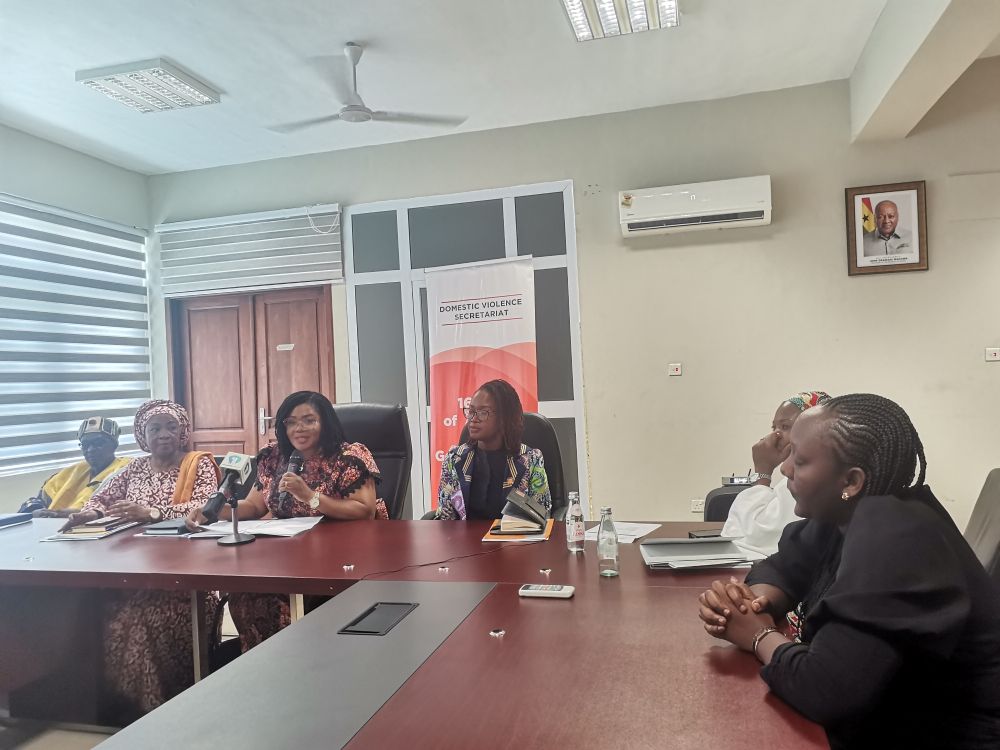|
Getting your Trinity Audio player ready...
|
Dr Agnes Naa Momo Lartey, the Minister of Gender, Children and Social Protection, has urged traditional and religious leaders to condemn Female Genital Mutilation (FGM) and promote alternative rites of passage.
She said they must use their community platforms to encourage practices that celebrated womanhood without causing harm. Dr Lartey made the call during the commemoration of the 2025 International Day of Zero Tolerance for FGM in Accra. The global theme for the celebration is : “Stepping up the Pace : Strengthening alliances and building movements to end FGM”.
The national theme is: “Accelerating Action to End Female Genital Mutilation: Protecting the Rights and Dignity of Women and Girls in Ghana”. Globally, FGM affects an estimated 125 million women and girls, with 30 million more at risk every year. In Ghana, while the overall prevalence of FGM remains relatively low at 2.4 per cent among women aged 15 to 49, the practice persists in certain regions, particularly the Upper East, Upper West, and Northern. Dr Lartey said traditional and religious leaders were the custodians of culture and morality with unparalleled influence in shaping attitudes and behaviors, hence involving them in the fight against FGM was critical.
They must, however, be equipped with the tools to drive cultural transformation, she noted. The Minister said ending FGM was a goal and a moral imperative as well as a critical step toward achieving the Sustainable Development Goals (SDGs), particularly those related to health, education, gender equality, and inclusive societies. “FGM is a violation of human rights, a form of Gender-Based Violence, and a major barrier to achieving gender equality, denying women and girls their right to health, safety, and bodily autonomy.” Dr Lartey recommended engaging and empowering policymakers to strengthen laws and policies that protected women and girls. There must be monitoring and enforcement of existing laws to ensure accountability and justice for survivors.
The citizens must also be given continuous education on the dangers of the menace and mobilize them to join the movement, she added. Dr Emmily Naphambo, the United Nations Population Fund (UNFPA) Deputy Representative to Ghana, said a recent UNFPA-commissioned assessment in Kasena-Nankana West, Pusiga and Wa East districts revealed that approximately five per cent of females aged 15 to 49 had undergone FGM. The findings reaffirmed the existence of FGM and the need for accelerated action, stronger partnerships, and greater investment in advocacy and community engagement.
Dr Naphambo said the Fund was committed to empowering youth leaders and supporting survivor-led initiatives, ensuring that those most affected were at the forefront of advocacy efforts. “We also stand ready to support survivors as we see them, hear them, encourage their resilience and therefore call for coordinated response to ensure they access healthcare, education, and economic opportunities to rebuild their lives,” Naba Baba Salifu Atamale Lemyaarum, Paramount Chief, Bongo Traditional Area, said the justification for FGM was invalid.https://youtu.be/T4FY7OfQrMw?si=VYKlLrPnBXP_dsNr
“… The reasons behind the practice was that if a woman is circumcised, she has rarely good desire for sex, and therefore she is committed to the husband. But that narrative has been diffused. The fact is that we have seen women who are circumcised and yet they are not faithful to their husbands ” He said the Paramount Queen Mother, and about 27 other queen mothers in his district, were working very hard to eradicate FGM. The Paramount Chief noted that the perpetrators of the practice, mostly from Burkina Faso, lured the girls across the Ghanaian border into their country to circumcise them. Therefore the chiefs around the border areas had been sensitized with the responsibility to report offenders to the authorities and deal with families who crossed the border to circumcise their girls.
GNA


